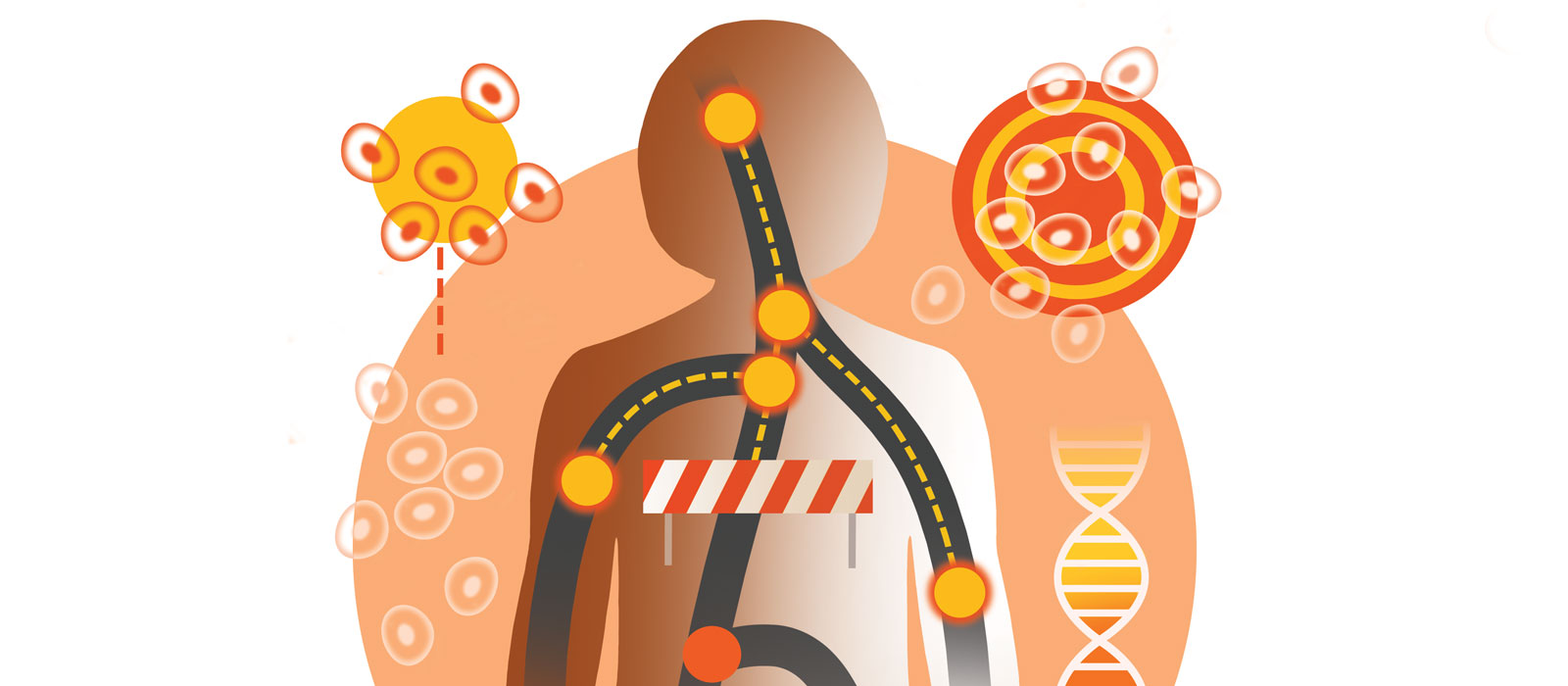As immunotherapy use in clinical practice continues to grow, oncology nurses may have questions about the therapies and their implications for care. Here are the top five questions ONS receives about oncology immunotherapy drugs. For more information, check out the other resources on the Immunotherapy Cancer Treatment page or send an email to clinical@ons.org.
Are Immunotherapy Agents a Form of Chemotherapy?
No. Chemotherapy has many classes: antimetabolites, antitumor antibiotics, taxanes, etc. However, immunotherapy represents an entirely different category of cancer treatment with its own classes, including monoclonal antibodies, checkpoint inhibitors, chimeric antigen receptor therapy, cancer vaccines, oncolytic virus therapy, and cytokines. Immunotherapy agents do not directly induce cell death like chemotherapy does; rather, they use the immune system, either actively or passively, to target and kill cancer cells.
Can Anyone With Cancer Receive Immunotherapy?
No. Although approved agents and indications for immunotherapy are broadening, and others are being explored in a vast number of clinical trials, not everyone can be considered for immunotherapy. Some immunotherapy agents require that certain antigen receptors and targets be present on the surface of tumor cells to be effective. Researchers continue to identify new targets and assays to test for the presence of these antigens as we learn more about how cancer cells are communicating with and evading the immune system. Additionally, some immunotherapy agents result in the immune system being put in overdrive and can result in an overactive immune system. Patients with a history of autoimmune disorders may not be appropriate for all forms of immunotherapy. Careful consideration should be placed on likely benefits and risks before starting any form of cancer treatment.
What Are the Most Common Side Effects of Immunotherapy?
Although we are still learning much about the acute and long-term side effects of immunotherapy agents, what we do know is that side effects and toxicities greatly depend on the form of immunotherapy a patient is receiving.
- Checkpoint inhibitors are associated with fatigue, diarrhea, infusion reactions, and immune-related adverse events (including colitis, pneumonitis, dermatitis, and endocrinopathies) that occur as a result of an overactive immune system.
- Cytokines are linked to injection site pain, flu-like syndrome, and capillary leak syndrome.
- Vaccines can cause injection site pain and flu-like syndrome.
- Chimeric antigen receptor therapy can result in cytokine release syndrome.
- Oncolytic virus therapy is associated with fatigue, chills, fever, flu-like syndrome, and injection site pain.
Can Immunotherapy Side Effects Be Managed the Same Way as Chemotherapy Side Effects?
Not always. Some immunotherapy agents are associated with fatigue, which can be managed in the same way as chemotherapy-induced fatigue. However, in some cases, immunotherapy-induced fatigue may be a sign of immune-related hypophysitis. An individualized assessment and management plan should be used for patients on immunotherapy to ensure that differential diagnoses and unique immunotherapy toxicities have been considered. Checkpoint inhibitors specifically are associated with immune-related adverse events, mimicking an autoimmune response, and may require systemic steroids. Assessment, diagnosis, and management should be prompt to minimize complication and enable the patient to receive scheduled therapy. Treating these side effects as routine chemotherapy complications could delay management and allow time for immune-related adverse events to worsen. Patients must be educated that they are not on chemotherapy, and they should have some kind of identifier to other healthcare providers indicating they are on immunotherapy so differential diagnoses can be made and appropriate treatment strategies initiated.
Do I Need Special Training or Education to Administer Immunotherapy?
ONS’s position is that nurses who care for patients receiving immunotherapy agents are determined by their respective practice sites to be competent in immunotherapy administration after receiving a fundamental knowledge of principles such as mechanism of action, side effects and management, safe handling, administration considerations, and others. In many instances, immunotherapy is given in conjunction with other antineoplastic therapies such as chemotherapy or radiation therapy, therefore it is suggested that nurses caring for patients with cancer have fundamental knowledge of all types and classes of pharmacologic anticancer agents. Similar to chemotherapy and biotherapy, immunotherapy administration has no recognized certification. Rather, practice sites must determine what education and training will be required of nurses to deem them competent in immunotherapy administration.






